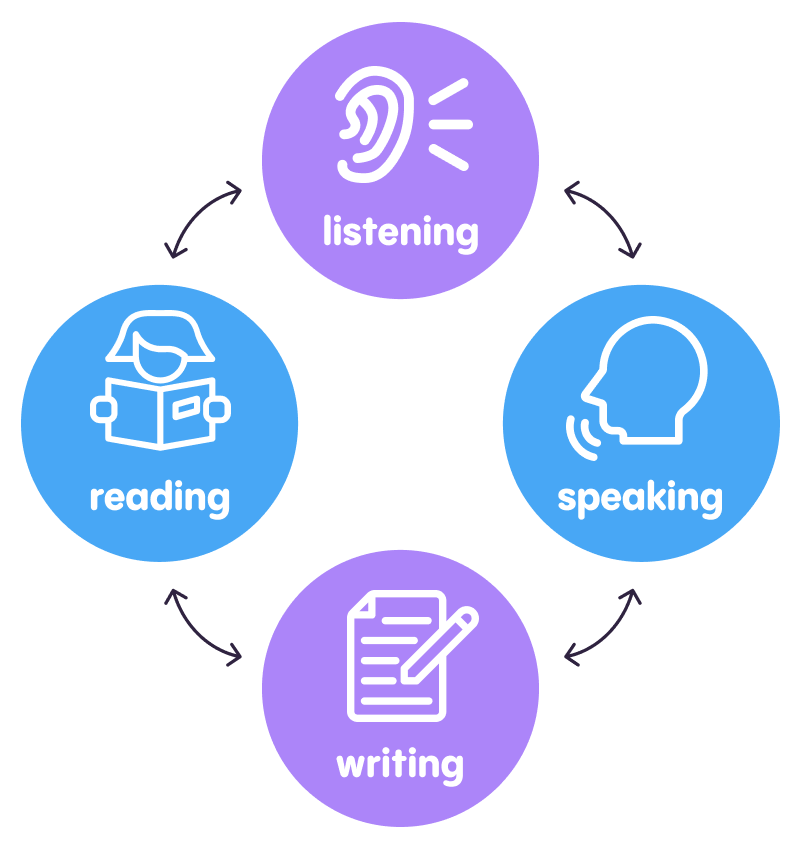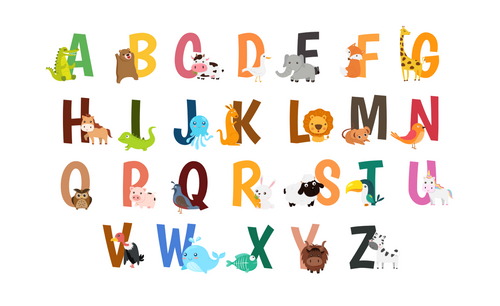Recognizing Signs of Progress in Your Child's English Learning Journey
The English learning journey is exciting, filled with delightful discoveries and milestones. But how do you, as a parent, identify the signs of your child's progress in English? In this guide, we'll shed light on the indicators your child is advancing in their English skills, making your monitoring process straightforward and enjoyable.
Understanding the Basics of Language Acquisition
To recognize progress, it's essential first to understand the basics of language acquisition in children. The process involves four key stages: listening, speaking, reading, and writing.
Listening: Children first begin to understand spoken English through listening. Be it through songs, conversations, or online lessons like the ones offered at All Right Online English School.
Speaking: As their listening skills develop, children replicate the sounds and words they hear, starting with simple words and sentences.
Reading: Once they've grasped speaking, children move on to recognizing written words and sentences, enhancing their reading comprehension.
Writing: The final stage involves expressing thoughts and ideas in written form and mastering grammar and spelling.

How to Spot English Language Progress
Recognizing progress in English learning is much more than seeing your child memorize vocabulary or recite the alphabet. Here are some practical ways to identify genuine progress:
Look for a Growing Vocabulary: If your child uses new English words in their daily conversation or written work, it's a clear sign of progress. You could use flashcards to make vocabulary learning more fun!
Check for Improved Pronunciation: Listen for improvements in your child's pronunciation over time. They might start pronouncing tricky words correctly.
Monitor Reading Comprehension: As your child reads more English books or storybooks, see if they can summarize the story or explain the meaning of complex sentences.
Observe Confidence Levels: If your child is more comfortable speaking in English or volunteering to read out loud in their online classes, they're making great strides!
The Top 5 Signs Your Child is Progressing in English
Being able to spot the signs of your child's progress in English learning is a rewarding and encouraging experience. Here, we've boiled it down to the top five signs that your little one is making strides in their English learning journey.
Sign 1: Expanding Vocabulary
An expanding vocabulary is one of the most precise indicators of progress in English. This growth can be seen in everyday language and academic contexts.
Everyday Vocabulary
If your child begins using new English words in daily conversations or while playing, that's a beautiful sign of progress! For instance, they might start using words like "enormous" instead of "big" or phrases like "Could you please pass the toy?" instead of "Give a toy." This shows they are learning new words and understanding their usage in day-to-day life.
Academic Vocabulary
In addition to everyday vocabulary, progress in academic vocabulary is equally important. This refers to the language your child uses in an educational context, including terms specific to their study materials and subjects. If your child is using and understanding academic words like "multiply," "experiment," or "paragraph," it's a great sign they are grasping their English lessons well.

Sign 2: Improved Pronunciation and Grammar Understanding
The next sign to look for is better pronunciation and a solid grasp of English grammar. If your child correctly pronounces words they previously found challenging, that's a surefire sign of improvement. Additionally, if they're using English tenses correctly and creating complex sentences quickly, it strongly indicates they're getting the hang of English grammar.
Sign 3: Enhanced Reading Comprehension
Improved reading comprehension is another crucial sign of progress. If your child is reading English storybooks, articles, or their study material independently and can explain what they've read, you've got a winner! This shows they're not just recognizing words but genuinely understanding what they're reading.
Sign 4: Confidence in Speaking English
Confidence is critical when learning a new language. If your child is more comfortable speaking English in different settings, whether in their online classes or with English-speaking friends, it's a sure sign they're making great strides in their English learning journey.
Sign 5: Greater Enthusiasm for English Activities
Lastly, a spike in enthusiasm for English activities is a clear sign of progress. If your child shows excitement for English homework, reading English books, or attending their online English lessons, it means they're finding the learning process enjoyable, which is a fantastic step forward.
What to Do If Progress is Slow?

Learning English, just like any other language, has ups and downs. There can be times when progress may seem to slow down a bit. But fear not, modern mom, learning is not a race! Everyone learns at their own pace and has their own unique learning journey. It's essential to be patient and persistent. So, if you find your child's English learning progress stalling, here are some practical tips and strategies to help you boost their enthusiasm and progression.
Encouraging Your Child
The most important thing is always to keep the encouragement flowing. It's the fuel that drives learning! Here are a few ways to uplift your child:
Celebrate Their Efforts: No achievement is too small. Celebrate it if they've learned a new word or made a correct sentence.
Reinforce Positivity: Reinforce that they're doing a great job, and every bit of progress, however tiny, is a step forward in their English learning journey.
Remind Them It's Okay to Make Mistakes: Language learning involves making mistakes. It's part of the process and a great way to learn. So, remind them it's okay to err.
Keep It Fun: Make learning fun by incorporating games, music, and stories in English.
In conclusion, it's essential to remember that every child's learning journey is unique. Progress may not look the same for every child, and that's perfectly okay. What matters most is that your child enjoys their English learning journey, gains confidence, and develops a lifelong love for the language. As a modern mom, your support is vital to this beautiful journey. Happy learning to your little ones!









